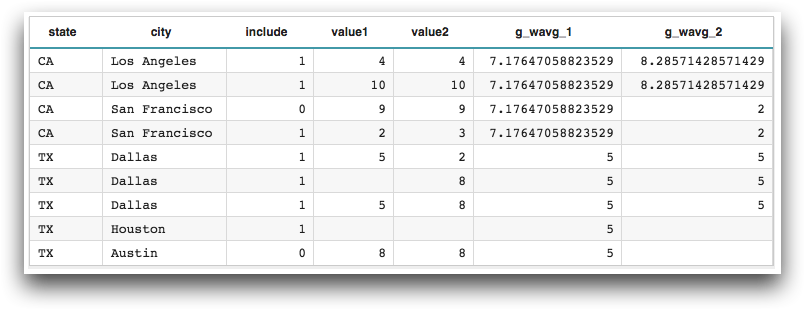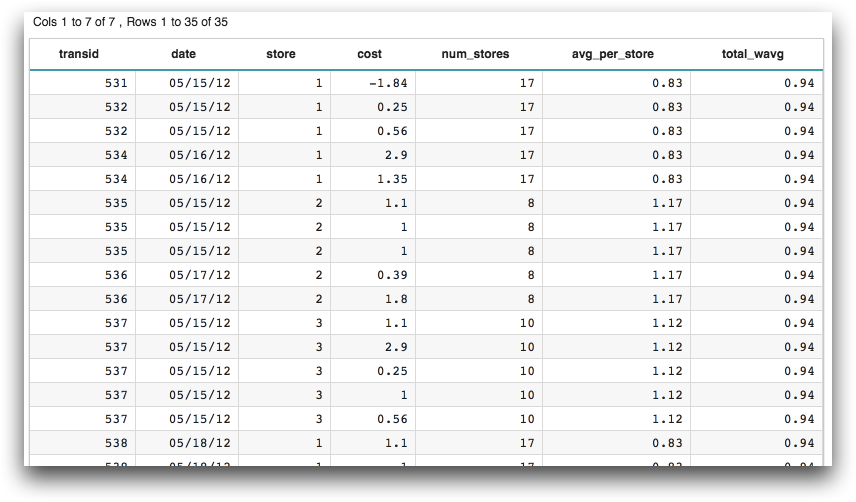g_wavg(G;S;X;Y)
Returns the weighted average of values within a given group.
Function type
Vector only
Syntax
g_wavg(G;S;X;Y)Input
| Argument | Type | Description |
|---|---|---|
G |
any | A space- or comma-separated list of column names Rows are in the same group
if their values for all of the columns listed in If If any of the columns listed in |
S |
integer | The name of a column in which every row evaluates to a 1 or 0, which determines
whether or not that row is selected to be included in the calculation If
If any of the values in
|
X |
integer or decimal | A column name Rows
where |
Y |
integer or decimal | A column name containing the weights to apply to the values in
X when calculating the weighted averageRows where
|
Return Value
For every row in each group defined by G (and for those rows where
S=1, if specified), g_wavg
returns a decimal value corresponding to the weighted average of the values in the column
listed in X that are in the same group as that row. The values in
X are weighted by the values in the column listed in
Y.
If no rows have valid (non-N/A) values for both X and Y,
the result is N/A.
Sample Usage
<base table="pub.doc.samples.ref.func.g_func_sample_usage_two_values"/> <willbe name="g_wavg_1" value="g_wavg(state;include;value1;value2)"/> <willbe name="g_wavg_2" value="g_wavg(state city;include;value1;value2)"/>

Example
This example uses the g_wavg(G;S;X;Y) function to return the weighted
average of all three stores (total_wavg). The
g_wavg(G;S;X;Y) function can take four parameters, but in this case only
the X and Y parameters are needed. The X
parameter is each store's average cost (cost), and the Y
parameter is the amount the average is weighted by.
<base table="pub.demo.retail.item"/> <colord cols="transid,date,store,cost"/> <willbe name="num_stores" value="g_cnt(store;)" label="Number of`Stores"/> <willbe name="avg_per_store" value="g_avg(store;;cost)" format="dec:2"/> <willbe name="total_wavg" value="g_wavg(;;avg_per_store;num_stores)" format="dec:2"/>

